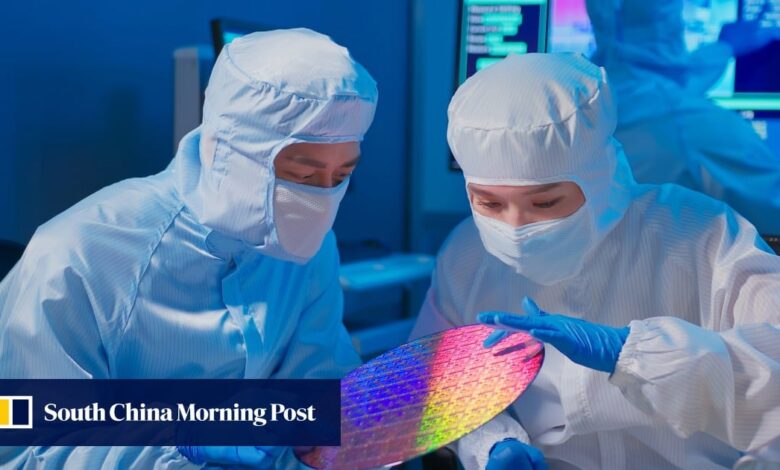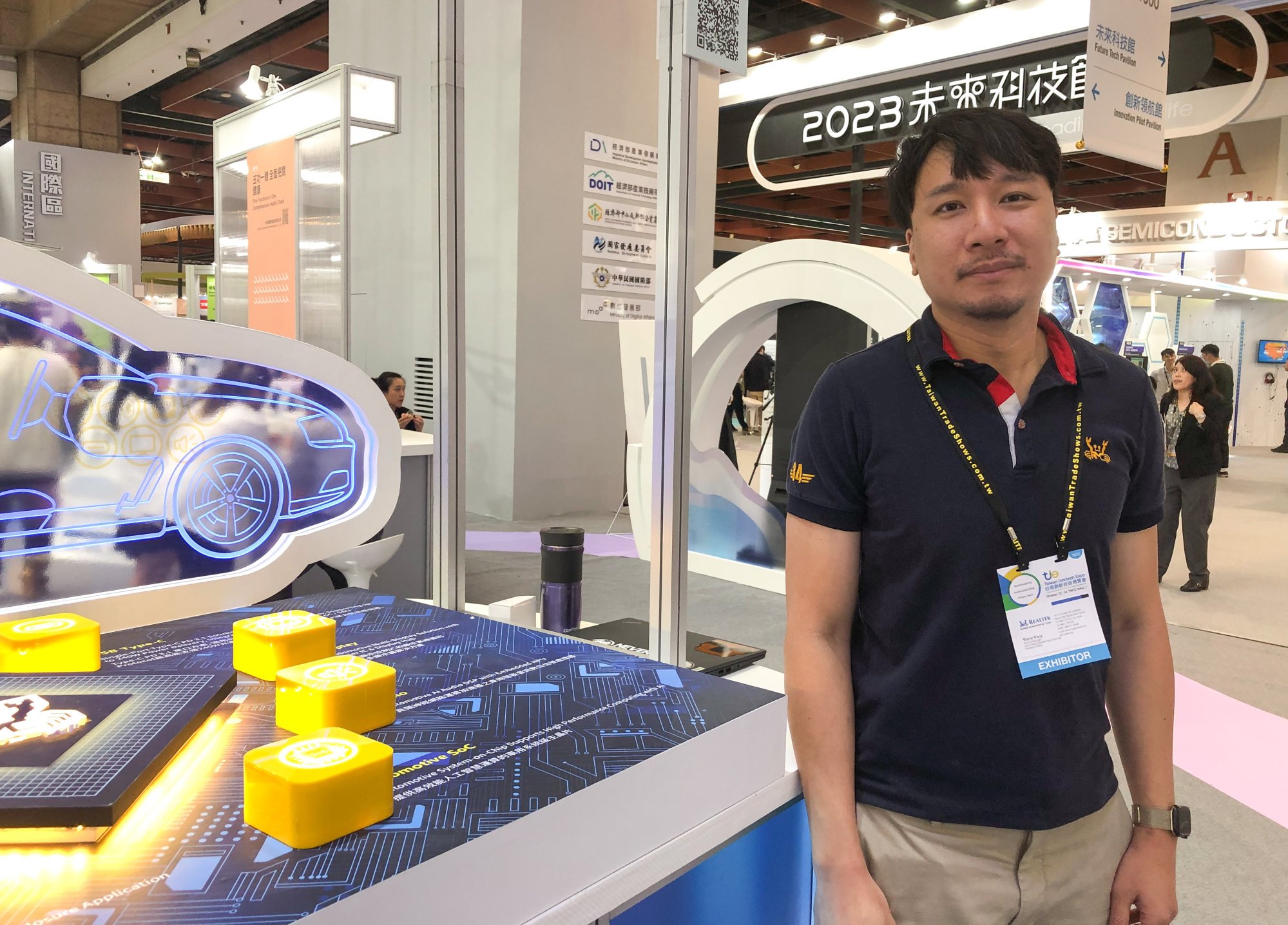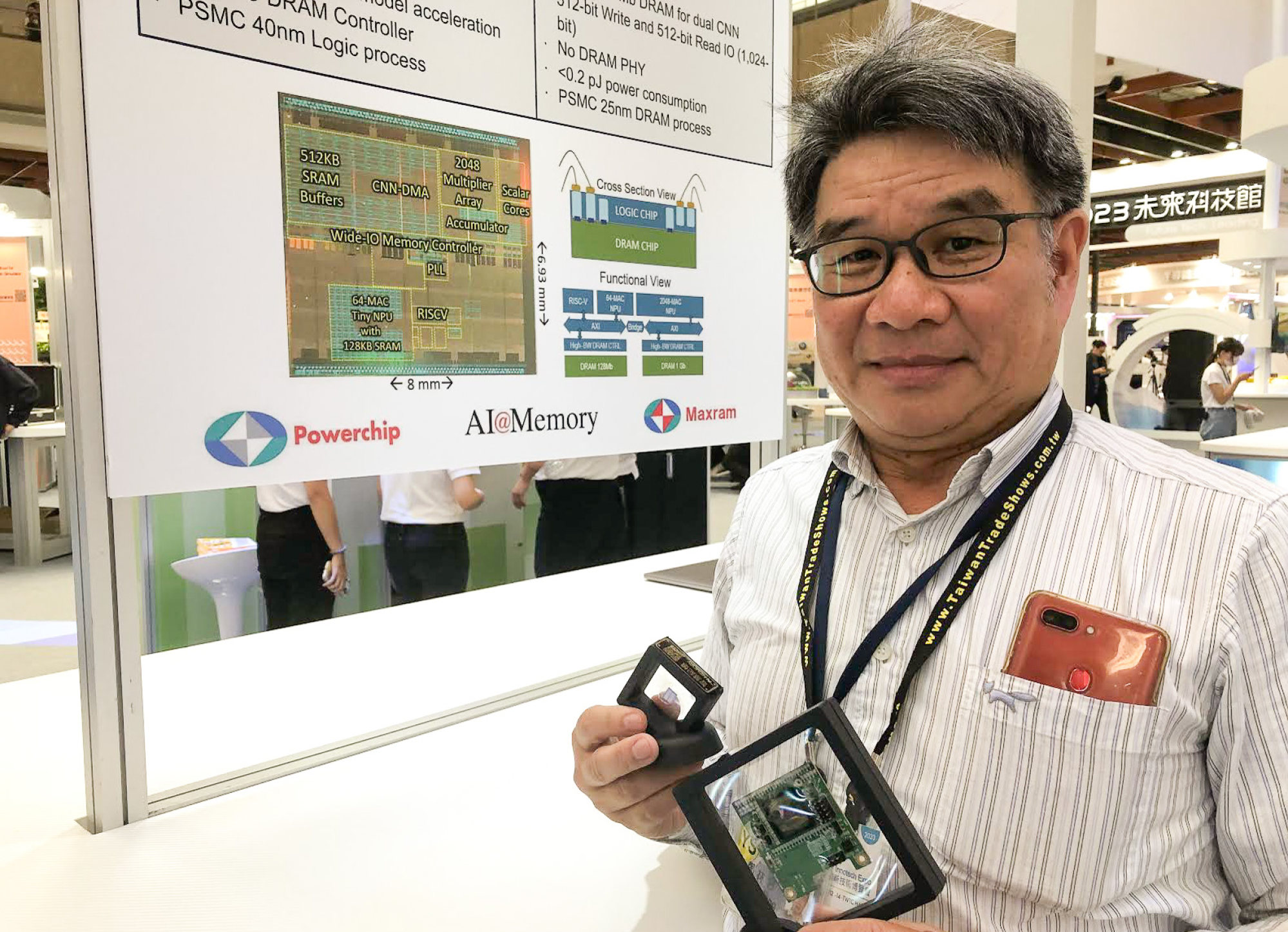Taiwan puts chips on the table with US$375 million semiconductor expansion fund

Developers and designers hope the government uses its weight to expand Taiwan’s chip market offshore without sacrificing Taiwan’s unique status, built over more than four decades, as a world semiconductor production centre.
“I expect to see growth in the integrated circuit design industry across various countries, including India and Malaysia,” said Ben Yeh, a Taiwan-based analyst with the Canalys market research firm. “Whether this specific [government] project will contribute to that trend is yet to be determined.”
About 60 per cent of the world’s chips are made on the island, led by Taiwan Semiconductor Manufacturing Company (TSMC) and a host of smaller peers that have fostered one of the world’s most mature supply chains. Taiwan supplies chips for phones, PCs, vehicles and factory machinery worldwide.
Fears about the industry’s future are growing as US-China trade and tech disputes have steered major countries toward East-West supply chain decoupling, with Washington trying to get Taiwan on its side.
But some overseas clients now want Taiwanese chip makers to do more production offshore to ensure supplies avoid getting stuck on the island in a hypothetical cross-Strait conflict, some business operators say.
Mainland China sees self-ruled Taiwan as a breakaway territory and says the two sides must eventually reunify, and most countries do not recognise Taiwan as an independent state.
Announced in August, Taiwan’s 10-year plan will assign “entry-level integrated circuit technologies” to overseas “training hubs”, National Science and Technology Council minister Wu Tsung-tsong told the government-run Central News Agency.
TSMC puts hopes in Japan chip plant as US project disappoints
TSMC puts hopes in Japan chip plant as US project disappoints
Training for advanced chip production processes would stay in Taiwan, the agency said, making the island into a “global integrated circuit design hub”.
National Science and Technology Council representatives declined to comment on the plan, saying it had not yet been discussed in full by other ministries.
Taiwanese chip developers harbour a laundry list of concerns and hopes.
There’s no higher level you can use to let clients know what we’re doing
Semiconductor designer Etron Technology welcomes official help finding clients overseas, the company’s memory application engineering director Huang Wei-ming said at the trade show.
“We’re not sure how the government can help,” said Huang, whose design house just released a memory chip series for cars. “But of course if they can do promotions in different countries, that would be great because sometimes our overseas agents can’t find them.”
Realtek Semiconductor already counts BMW, Ford Motor and Tesla among its clients for automotive chips, which are getting so advanced they can soon mask the sound of tyres rolling over the road and detect which passenger is talking, even in a crowded cabin.

The 36-year-old integrated circuit designer needs no help finding clients but could benefit from official promotion overseas of Taiwan as a “total solutions” provider, international marketing account manager Wayne Wang said. That reputation would lead international carmakers to a whole chain of Taiwanese chip suppliers instead of one by one, he said.
“There’s no higher level you can use to let clients know what we’re doing,” Wang said, referring to government help.
The island needs help at home to stay on track globally, said Cheng Lin-her, general manager of ATBS Technology, which works on tiny chips that can speed up computerised memory transfers without sacrificing power. Taiwan has too few chip makers to meet demand from design houses, Cheng said.
But he is sceptical about reproducing Taiwan’s chip ecosystem offshore.

“Taiwan’s semiconductor ecosystem cannot be copied,” he said. “You need to figure out water and electricity issues and get raw materials.”
A government-funded tech consultancy says the 10-year plan may be intended to keep up with competition from chip makers in mainland China to avoid a price war.
Specifically, Taiwanese semiconductor designers may be able to advance their chipmaking processes by learning techniques overseas and meeting global demand, said Cheng Kai-an, senior industry analyst with the Market Intelligence & Consulting Institute.
Staffing and funding for R&D are particularly scarce in Taiwan, the analyst said, suggesting that the government may cultivate both at overseas universities. Individual chip designers could also benefit from government introductions to clients, he said.
Tax agreement discussions with Washington under way: Taiwanese official
Tax agreement discussions with Washington under way: Taiwanese official
“The government itself might not surface,” Cheng Kai-an said. “They could use some sort of non-profit to reach that result.”
Taiwanese job search platform 104 Job Bank listed 18,671 openings in the semiconductor field on Friday, down slightly from a monthly average of 23,000 in the second quarter. Recruiting firm ManpowerGroup cites lower birth rates and a rise in early retirees as the top reasons.
On the money side, the National Science and Technology Council in March called for new funds, “ventures” and research facility upgrades by 2035.
A dearth of talent in chip design means training overseas “is something you can understand”, said Brady Wang, a Taipei-based analyst with the tech research firm Counterpoint.





